Category: Caregiving Tips
Articles for caregivers of terminally ill patients including how to manage challenging situations.
Articles for caregivers of terminally ill patients including how to manage challenging situations.
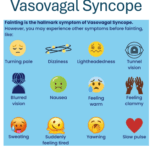
This article explores vasovagal syncope in terminally ill geriatric patients, especially those with cognitive impairments like dementia or brain cancer. It covers prevention, event handling, post-event care, and support for caregivers and family members.

Navigating the process of obtaining a dementia diagnosis for a loved one in denial involves understanding symptoms, preparing for doctor's visits, and participating in testing. This guide offers practical steps for family members to ensure proper treatment and care.

Recognizing when a loved one with dementia can no longer live safely alone is crucial for their well-being. This article helps families identify signs and offers practical steps for ensuring safety and care.

This guide helps hospice teams, caregivers, and families support loved ones with immunotherapy-induced tremors. Explore adaptive tools, tremor-reducing therapies, medication options, and practical care strategies to improve quality of life during hospice transitions.
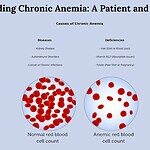
This guide explains chronic anemia in simple terms, covering symptoms, diagnosis, and treatments. Helps patients and families recognize signs and work with healthcare providers.
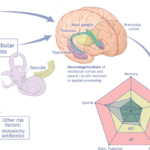
This article delves into the relationship between vertigo and dementia, offering insights for nurses, caregivers, and families to manage dizzy spells and provide compassionate care for those with cognitive challenges.

This article delves into the common medications that can lead to swelling in geriatric patients, with a focus on those receiving end-of-life care. It provides insights into prevention, management, and the importance of informed healthcare decisions.

Understanding respiratory mucus plugs is crucial, especially for those navigating the challenges of caring for terminally ill patients. As an experienced hospice nurse, I recognize the significance of addressing respiratory issues with empathy and clarity. This article aims to provide valuable insights into respiratory mucus plugs, their causes, diagnosis, treatment, prevention, and practical techniques to enhance lung function.

Caring for a loved one with dementia can be challenging, especially when it comes to preventing falls. One innovative and inexpensive solution is using pool noodles as bed bumpers. This article provides a comprehensive guide on effectively utilizing pool noodles to create a safe and secure sleeping environment, reducing the risk of falls and injuries. From selecting the right noodles to proper installation techniques, we cover everything you need to know to ensure your loved one's safety and peace of mind.

Discover the art of crafting hospice prayers that resonate with patients’ beliefs, providing comfort and solace in their final journey. Learn from hospice professionals about personalizing this sacred support.

Understanding the nuances between a Cerebrovascular Accident (CVA) and a Transient Ischemic Attack (TIA) can be life-saving. This guide helps family members recognize signs, differentiate between CVA and TIA, and respond swiftly to ensure the best possible care.
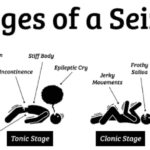
We understand that caring for a loved one in hospice can be a journey filled with compassion, love, and sometimes, uncertainty. When seizures are part of this journey, it’s natural to have concerns and questions. This guide is here to walk alongside you, offering knowledge and support as you navigate the complexities of seizure management in hospice settings.

Caring for terminally ill patients in denial can be challenging. This article explores why understanding denial is crucial and offers strategies for compassionate care. Techniques like Naomi Feil's validation therapy and motivational interviewing are highlighted to support patients respectfully, maintaining their dignity and emotional well-being.
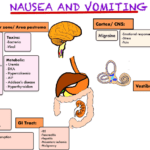
Nausea and vomiting are common and distressing symptoms in terminally ill patients. This comprehensive guide offers practical advice for caregivers and healthcare professionals on managing these symptoms, including pharmacological and non-pharmacological approaches, diet and lifestyle changes, and when to seek additional help.
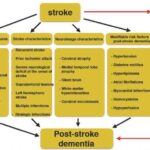
Stroke-induced dementia is a complex condition that affects both patients and their caregivers. In this guide, we’ll explore the impact of strokes on cognitive function, practical caregiving strategies, and considerations for maintaining quality of life.

Unveiling the pivotal events that may fast-track dementia progression. This article delves into how fractures, ulcers, infections, dietary habits, and certain medications like statins play a role in accelerating the onset and severity of dementia symptoms.

Living with dementia brings unpredictable days. This guide delves into the factors that influence the good and bad, offering insights and practical tips for caregivers to navigate the ever-changing landscape of dementia care, ensuring every day counts.

Discover the critical role of trauma-informed care in hospice. This guide provides nurses and staff with the knowledge to support traumatized patients while educating caregivers and family members on providing empathetic end-of-life care.

Discover the top twenty dermatologic conditions prevalent among the elderly. This guide covers symptoms, treatments, and tips for maintaining healthy skin in the golden years. It is perfect for caregivers and healthcare professionals.

Discover how acuity impacts hospice care. From assessment tools to real-world examples, this guide helps nurses and families navigate acuity levels.

This comprehensive guide provides essential insights into recognizing and addressing delirium in terminally ill individuals. It’s an invaluable resource for nurses, caregivers, and families, offering practical advice and empathetic support.

This guide offers practical advice for caregivers handling the challenges of undiagnosed dementia. Learn to create a supportive environment, recognize early signs, and navigate healthcare options.

This article delves into the challenges faced by family caregivers in hospice and palliative care, offering practical strategies and resources to support them in their indispensable roles.

This article offers insight into the complexities of dementia’s progression, providing families and caregivers with the knowledge to differentiate between everyday fluctuations and actual advancements in stages.